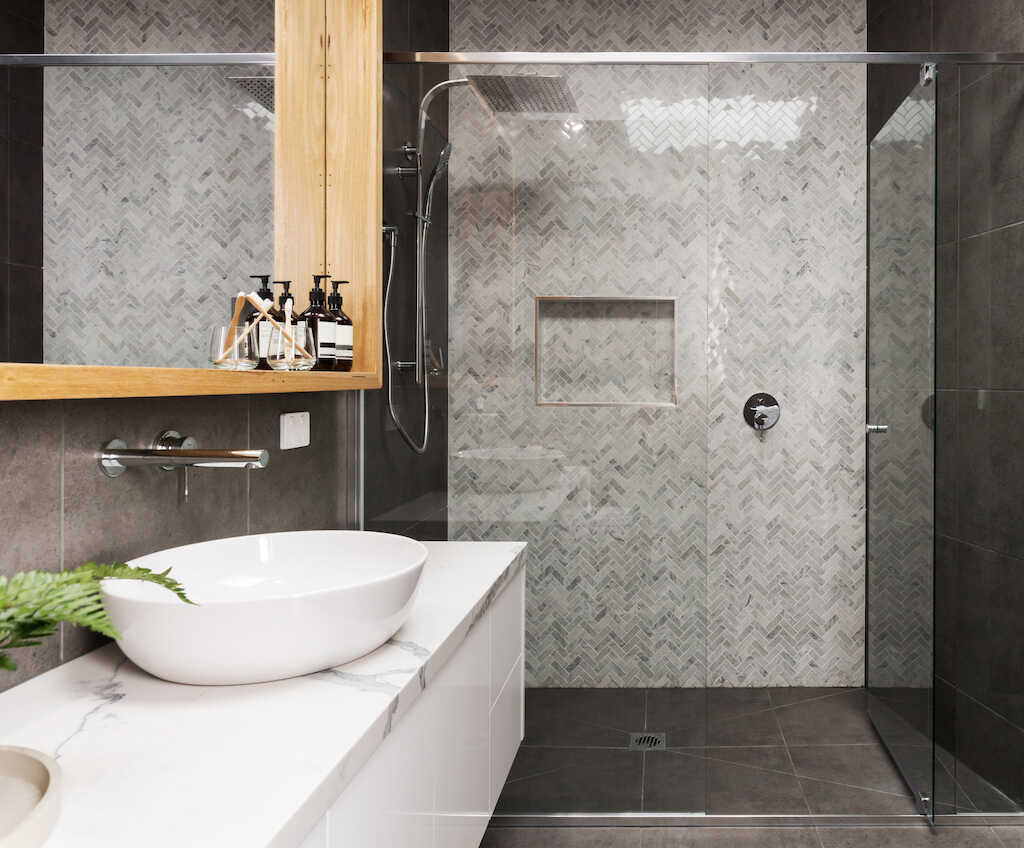Ever stepped into a shower and thought about the tiles beneath your feet? If not, it’s high time you did! The tiles you choose for your shower floor play a pivotal role in ensuring your safety, enhancing the aesthetics of your bathroom, and guaranteeing durability.
Choosing the right tiles isn’t just about matching colors or picking the trendiest designs. It’s about ensuring that every time you or a loved one steps into the shower, you’re stepping onto a surface that’s safe, looks great, and stands the test of time.
Let’s get into the nitty-gritty of why the choice of tiles for your shower floor is so essential.
Why Tile Choice Matters for Shower Floors
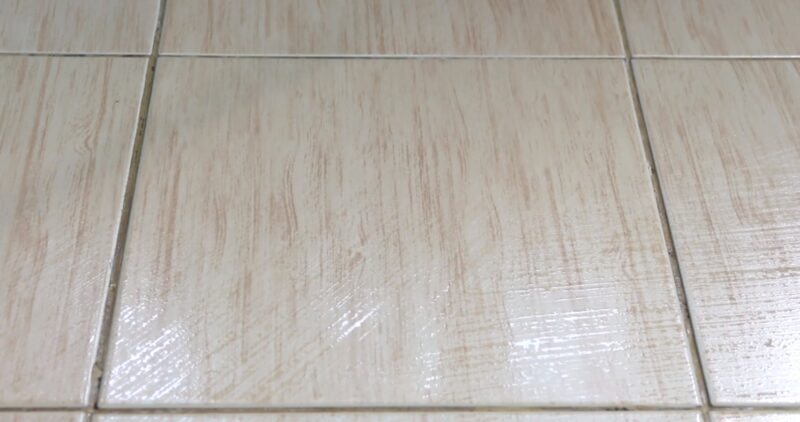
First and foremost, safety is paramount. We’ve all heard stories or maybe even experienced a slip in the shower. A slippery surface can quickly turn a relaxing shower into a dangerous situation. Hence, the texture and grip of the tile become vital.
But it’s not just about safety; the aesthetic appeal of your bathroom is significantly influenced by the tiles you choose. A well-chosen tile can elevate the overall ambiance, making your bathroom look like it’s straight out of a luxury magazine.
Durability is another key factor. The shower floor is constantly exposed to moisture, and not all tiles are up to the task. Opting for tiles that can withstand this constant exposure without deteriorating is crucial. After all, who wants to redo their shower floor every couple of years?
Top Tiles for Shower Floors
Choosing the right tile for your shower floor can make a world of difference. Not only does it set the tone for your bathroom’s aesthetic, but it also plays a crucial role in safety and functionality. Let’s explore some of the top contenders:
Ceramic Tiles
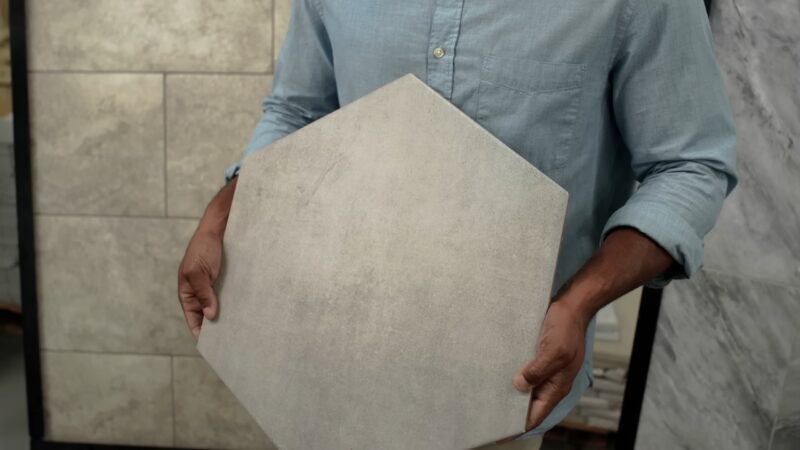
- They’re budget-friendly, making them a popular choice for many homeowners.
- The design options are endless! From vibrant colors to intricate patterns, there’s a ceramic tile for every style.
- Keeping them clean is a breeze.
- If they lack texture, they can be a slip hazard. So, always opt for textured ceramic tiles for shower floors.
Porcelain Tiles
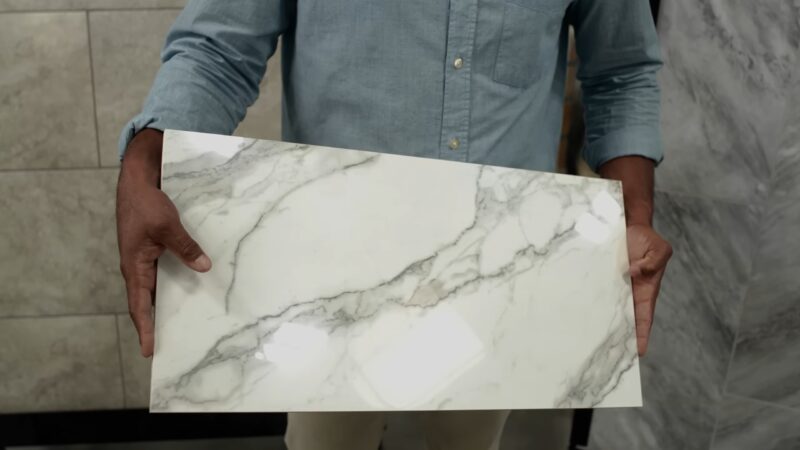
- These tiles are champions when it comes to water resistance.
- They’re built to last, ensuring your shower floor remains in top condition for years.
- If you’re a fan of the natural stone look but not its price tag, porcelain tiles offer a fantastic alternative.
- They might be a tad pricier than their ceramic counterparts.
Natural Stone Tiles
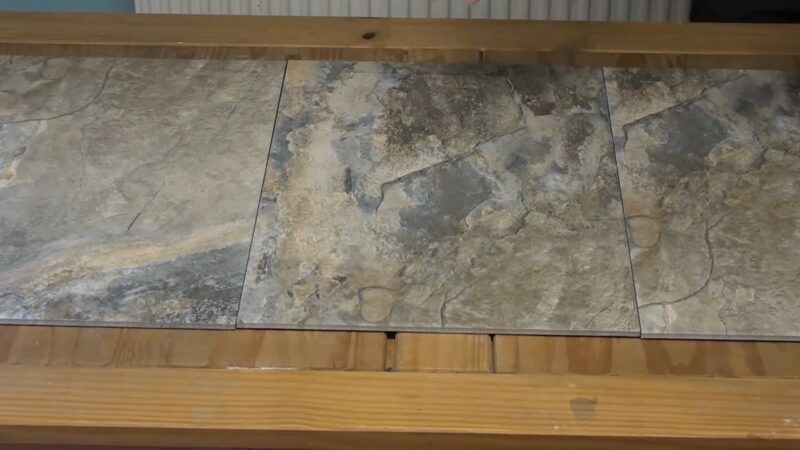
- Talk about luxury! Natural stone tiles exude elegance.
- Each tile is unique, giving your shower floor a one-of-a-kind look.
- They demand regular sealing to fend off water damage.
- They can be on the pricier side.
Pebble Tiles
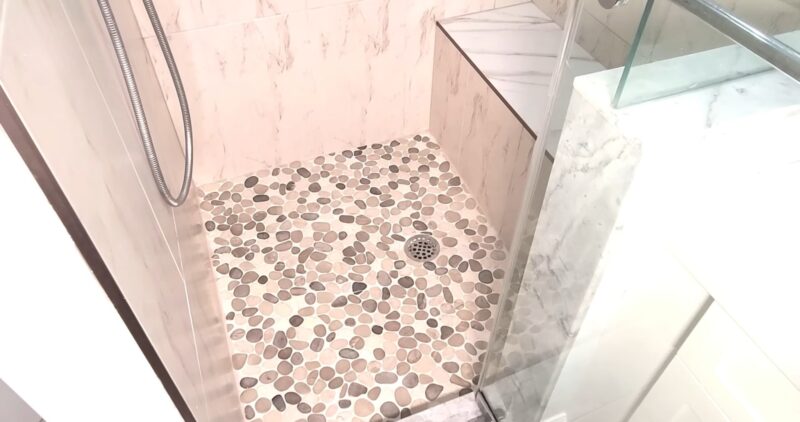
- They offer a spa-like, natural ambiance.
- Their textured surface is a natural deterrent to slips.
- Cleaning those grout lines can be a bit of a task.
- They might not be the best choice for those with sensitive feet.
Mosaic Tiles
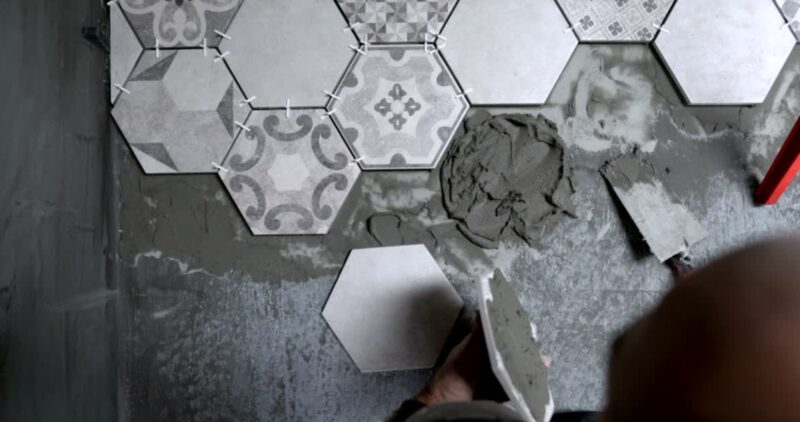
- Perfect for those looking to get creative with their shower floor design.
- Their small size means more grip, thanks to the increased grout lines.
- More grout lines also mean more maintenance.
- Installing them can be a tad more complex than larger tiles.
Factors to Consider When Choosing Tiles
When it comes to selecting the perfect tile for your shower floor, there’s more to consider than just looks. Here’s a breakdown of the key factors:
- Texture and Grip: The last thing you want is a slip in the shower. Always opt for tiles that offer a good grip, especially when wet. Mosaic tiles, for instance, with their multiple grout lines, can provide added traction.
- Maintenance: Think about the cleaning process. Some tiles, like pebble tiles, might have more grout lines that require regular cleaning. On the other hand, porcelain and ceramic tiles are relatively low-maintenance.
- Cost: Set a budget and stick to it. While natural stone tiles might be tempting, they can be costly. Porcelain and ceramic tiles offer a more budget-friendly alternative.
- Design and Aesthetics: Your shower floor should complement the overall design of your bathroom. Whether you’re going for a modern, minimalist look or a more rustic, natural vibe, there’s a tile out there that fits the bill.
Installation Tips
Installing shower floor tiles might seem like a straightforward task, but there’s more to it than meets the eye. Here’s what you need to know:
The Importance of Proper Installation
You’ve probably heard the saying, “A job well done is half the battle.” This couldn’t be truer when it comes to tile installation. Properly installed tiles ensure safety, longevity, and a flawless finish. This means no uneven tiles, no water seepage, and no premature wear and tear.
Professional Installation vs. DIY
While there’s a certain satisfaction in doing things yourself, tile installation might be one of those tasks best left to the pros. Professionals have the tools, expertise, and experience to ensure a perfect finish. However, if you’re confident in your DIY skills, make sure you’re well-informed and prepared. Remember, it’s not just about laying tiles; it’s about ensuring they’re correctly aligned, evenly spaced, and properly sealed.
Sealing is Crucial
Especially when it comes to natural stone tiles. These tiles are porous, which means they can absorb water, leading to potential damage. Sealing them creates a protective barrier, ensuring they remain in top condition for years to come.
FAQ
How do I prepare the surface before laying my tiles?
Proper surface preparation is key to avoiding future cracking or damage to your tiled surface. Begin by removing any old flooring, leveling the substrate, cleaning thoroughly, and priming the surface. If your shower has been previously tiled, remove old adhesive using a scraper or chisel.
Should I use thin-set mortar or adhesive when laying my tiles?
While glue adhesive is great for small areas such as splashbacks, thin-set mortar offers stronger adhesion and better waterproofing properties – especially in moisture-prone areas like bathrooms. Thinset mortar also ensures the longevity of your tiled surfaces.
Can I lay tiles over existing flooring?
Technically, you can, but it’s not recommended for two reasons: firstly, you’ll need additional height above existing materials, meaning doors may need cutting down, etc., and secondly, if there are underlayment issues underneath old flooring, these won’t be resolved, causing problems at a later stage.
Conclusion
So, there you have it! Choosing the right tiles for your shower floor is a blend of aesthetics, safety, and functionality. It’s about creating a space that’s not only visually appealing but also safe and durable.
Remember, the key is to strike a balance. Prioritize safety and durability, but don’t compromise on aesthetics.
With the right tiles and proper installation, your shower floor can be a testament to style, safety, and longevity.
